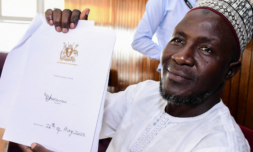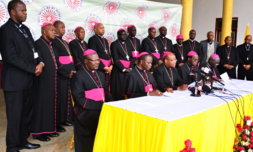In Namibia’s elections, two openly LGBTIQ+ candidates, Kevin Wessels and William Minnie, made history by vying for parliamentary seats. Despite not winning, their candidacies have proven the country’s inclusion and respect to human rights.
28-year-old Kevin Wessels and 22-year-old William Minnie made history a week ago as Namibia’s first openly LGBTIQ+ candidates.
Representing the Republican Party and the Landless People’s Movement respectively, they had ambition to champion policies promoting equality, diversity, and inclusivity. Both Wessels and Minnie viewed their candidacy as a chance to empower marginalized groups by advocating from within the system.
The significance of these candidacies is profound. Namibia only recently decriminalized same-sex relations this year June 2024, overturning colonial-era laws. This legal victory, although monumental, has been met with resistance, including increased hate crimes and efforts by conservative politicians to introduce legislation that could curtail LGBTIQ+ rights further.
Yet, the involvement of Wessels and Minnie continues to offer hope and a new narrative for the country’s youth, who are seen as pivotal in driving societal acceptance and change.
While the visibility of these candidates is encouraging, it is not without risks. Namibia’s LGBTIQ+ community continues to face backlash, including violence and political opposition. The conservative ruling SWAPO party, for instance, has denounced LGBTIQ+ advocacy as foreign influence, reflecting lingering cultural and political tensions.
With a population of about 3 million people, Namibia has witnessed a gradual shift in attitudes toward LGBTIQ+ persons and discussions. In 2023, the Supreme Court recognized same-sex marriages performed abroad, a decision that both Namibian activists and human rights organizations hailed as a major win not only for the country but also for the continent.
Despite the slow pace, the candidacies of Wessels and Minnie come at a time when the fight for LGBTIQ+ equality is gaining popularity across Africa. South Africa currently remains the only country on the continent to have legalized same-sex marriage, while other countries, such as Uganda, have enacted stricter anti-LGBTIQ+ laws and draconian penalties.
Namibia’s LGBTIQ+ movement has been buoyed by growing advocacy, public discourse, and youth activism despite some remaining regional challenges. The presence of young, openly queer candidates in the continent’s political arena could amplify these efforts and spark more progressive discussions in law making processes.
Younger Namibians continue to be vocal about equality and inclusion, making them a critical demographic in any election going forward.
By running for government office, Wessels and Minnie not only amplified the voices of the LGBTIQ+ community but also challenged outdated norms, inspiring a generation to envision a more inclusive Namibia.

















